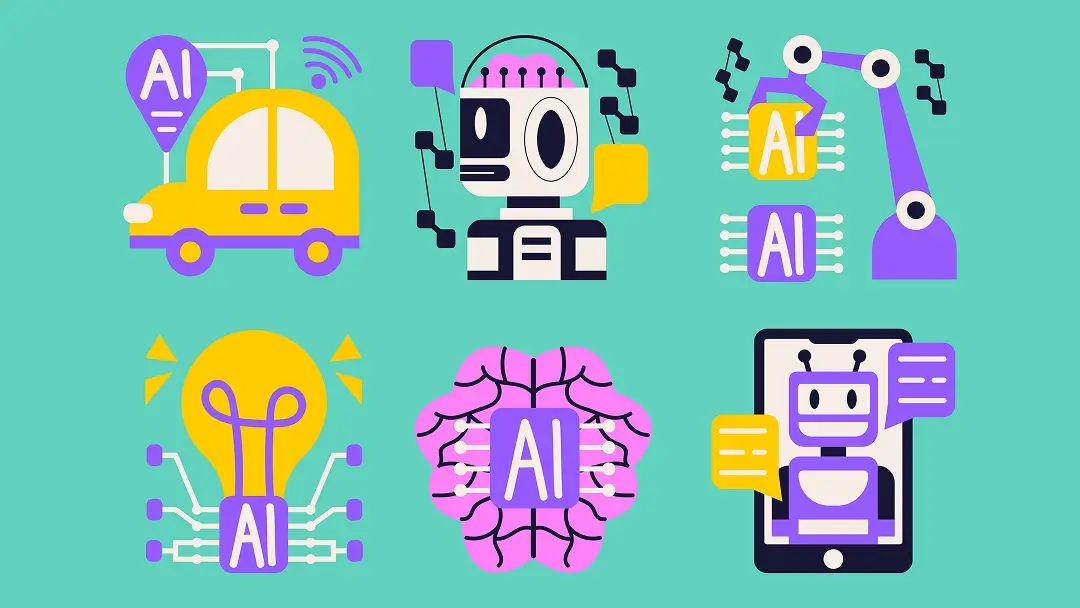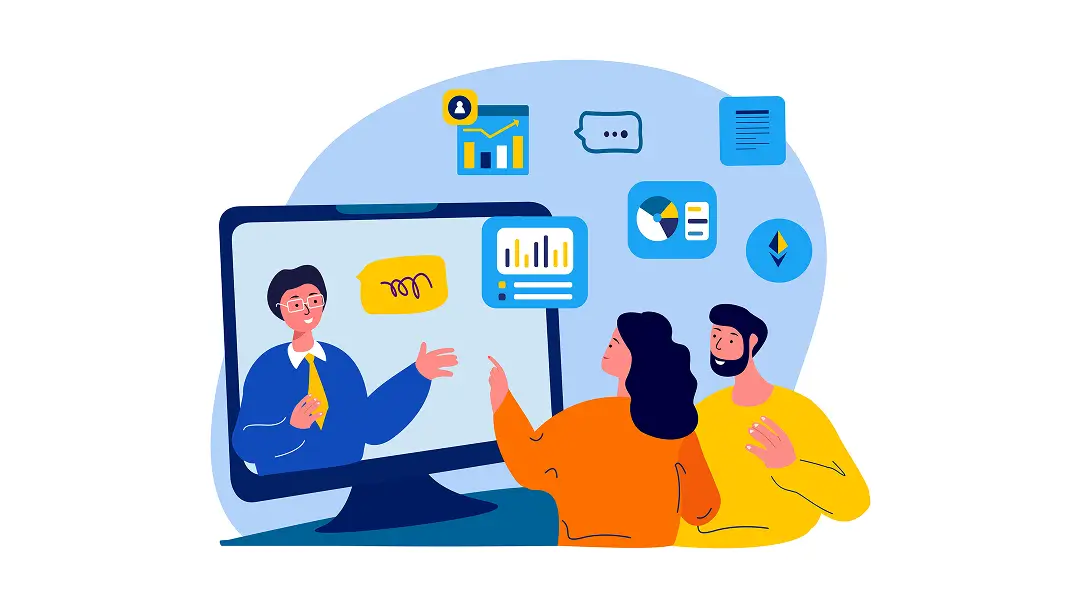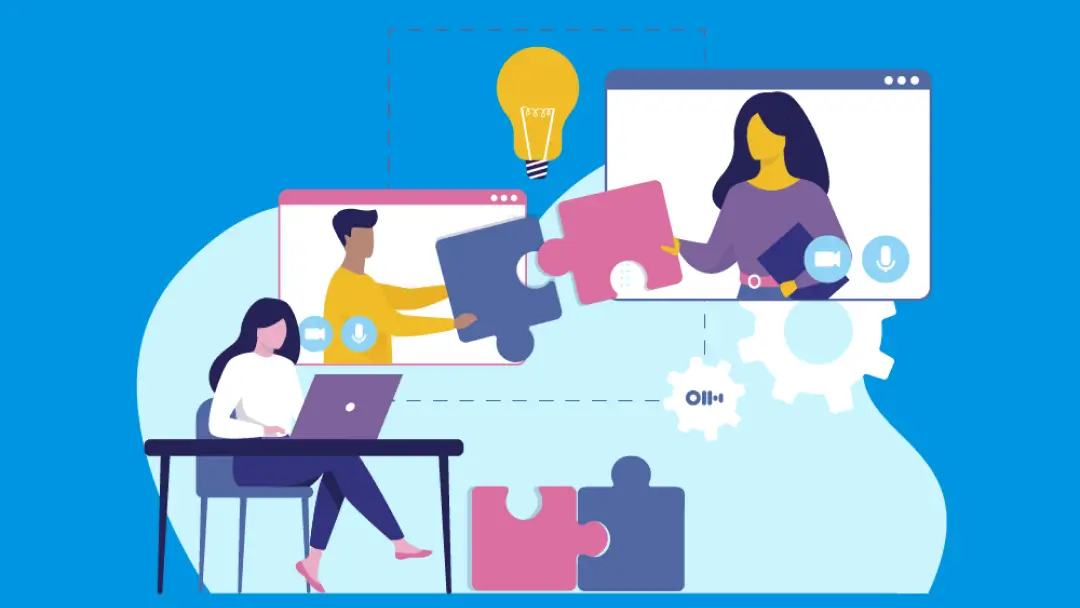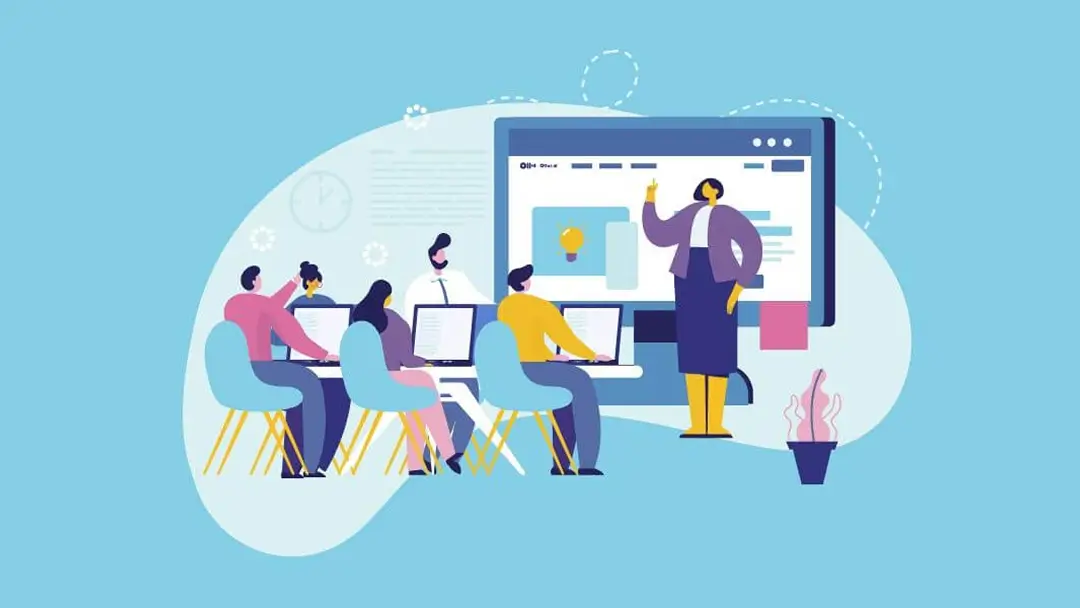A Guide to AI in Recruiting

When a new job listing goes live, it can quickly attract hundreds of applicants eager to land the role. But sorting through the influx of resumes, cover letters, and applications can overwhelm recruiters — especially when each submission requires careful attention to detail. This is where artificial intelligence (AI) can offer an extra pair of eyes.
AI tools automate many of the initial stages of talent acquisition. They can scan resumes for keywords, assess qualifications, and even perform preliminary screening interviews, allowing recruiters to zero in on the most promising candidates.
While AI recruiting can point hiring managers in the direction of the best talent, too much dependence on technology can create blind spots. AI may excel at analyzing data, but it lacks the empathy and intuition human recruiters depend on to make good decisions.
Here’s how AI can enhance the recruitment process — and how to use it responsibly.
6 ways AI is transforming the recruitment process
The recruiting process is full of time-consuming manual tasks, from organizing resumes to fielding basic questions about the job role from dozens (and sometimes hundreds) of applicants. Using AI in recruiting can create lean workflows that identify the most qualified talent for the role. Here’s how:
1. Streamline candidate screening
Many job descriptions require specialized skill sets and experiences. Imagine you need to fill a job role that requires a specific hard skill, like advanced data analysis or proficiency in specialized software. Sifting through hundreds of resumes to identify candidates with the right qualifications takes time and is prone to errors.
Instead, you can program an AI recruiting tool to perform initial assessments by spotting the keywords and qualifications. It can quickly prioritize applicants, highlighting the best candidates based on a clear set of criteria and saving you time.
2. Improve candidate engagement
One-on-one engagement with potential candidates helps applicants and recruiters alike understand collaboration and communication styles. But personalized meetings with every candidate aren’t always realistic, especially when a large number of applicants have the same basic queries about the job.
AI chatbots use machine learning technology to analyze user inputs and engage candidates in real time, offering a more interactive and responsive hiring process. These AI agents can handle everything from answering common questions about the job description to scheduling interviews. Candidates can quickly get the information they need and make decisions about whether to continue pursuing the opportunity, while recruiters can use their time to focus on more strategic aspects of the hiring process.
3. Enhance interview efficiency
Lining up interviews requires a lot of back-and-forth. AI-powered recruitment tools can integrate with calendars to automate interview scheduling, send reminders, and even reschedule if needed. Additionally, tools like Otter.ai can analyze discussions and provide concise interview notes, allowing recruiters to quickly assess candidate responses without revisiting lengthy interview recordings.
4. Reduces bias
Despite extensive interview training, recruiters, hiring managers, and HR specialists can struggle to stay objective. Unconscious biases, like the tendency to favor candidates from certain backgrounds or subtle judgments about a person’s appearance, can unfortunately affect the process.
AI algorithms can be trained to evaluate candidates solely on relevant skills, qualifications, and experience rather than gender, age, or ethnicity, nurturing fair and equal hiring practices.
5. Speeds up the hiring process
Even if you don’t need to fill a role immediately, hiring processes that drag on for weeks or months can cause you to lose talent or damage your brand image. AI recruitment tools speed up the entire process, from separating resumes to automating initial screenings — dramatically reducing the time between a job posting and making an offer.
Likewise, using AI in recruitment supports HR teams by automating administrative tasks like onboarding, compliance checks, and paperwork. This lets HR professionals focus on more strategic aspects of talent management and lets new hires jump right into their roles.
6. Analyze candidate data
AI algorithms can analyze candidate data in seconds, identifying valuable traits and predicting future performance. While recruiters shouldn’t rely completely on AI recruitment tools to make final calls, laser-sharp insights help them make more informed and objective decisions throughout the hiring process.
3 challenges of AI in recruiting
Artificial intelligence can do a lot of heavy lifting to find the most qualified candidate. But the best pick is more than a list of skills and qualifications. Empathy, intuition, and a sense of connection ultimately decide whether a candidate is the right culture fit. So while using AI can greatly improve efficiencies in the recruitment process, it still faces challenges that make human judgment irreplaceable.
Here are three reasons why recruiters, hiring managers, and HR teams should use AI as a tool rather than depend on it for talent acquisition.
1. Ethical considerations
AI is only as good as the data sets it’s provided with. While AI can reduce bias in the hiring process, it can also exacerbate bias if it’s trained on data that reflects gender, race, or other forms of bias. Likewise, individuals with disabilities may have trouble interacting with AI-powered systems. For example, an AI recruitment system that analyzes emotional cues or sentiment during a candidate’s response may unfairly judge individuals with speech impediments or people who express themselves differently.
Companies need to carefully design, monitor, and update AI recruitment systems to ensure fairness and inclusion. And HR and hiring managers should pay attention to and assess AI outputs, seeking out patterns that could reflect biased screening.
2. Reduced human interaction
Recruiters aren’t the only ones who want to get to know a candidate. Applicants also need the opportunity to assess company culture, values, and team dynamics. AI-powered recruitment tools reduce the amount of human interaction candidates have with potential colleagues and hiring managers. While AI may be efficient for screening, it lacks the personal touch that helps candidates connect with the organization.
Without face-to-face interactions, candidates miss the opportunity to ask questions or observe how team members communicate. Plus, impersonal AI recruiting can signal a lack of connection and care within the organization.
Recruiters should balance AI automation for manual tasks with meaningful human engagement throughout the hiring process, ensuring everyone has the opportunity to evaluate the right fit.
3. Investment
Implementing AI recruiting tools requires time, money, and resources. Plus, you need ongoing maintenance to make sure these tools remain effective and up-to-date, which may be out of reach for small businesses. The learning curve for HR teams and recruiters to fully adopt and utilize AI-powered tools can create bottlenecks in the recruitment process — not to mention budgets.
Don’t take the combination of financial investment and continuous oversight lightly. Carefully analyze what type of AI recruitment tools will truly benefit your hiring process and double-check that integration is realistic to your company’s capabilities.
Searching for your next top talent? Otter makes it simple
Whether interviewing two or 20 candidates for a job role, Otter can transcribe and analyze every discussion in your process. This helps you focus on getting a feel for the candidate while Otter records and summarizes responses.
By using AI to streamline and enhance key aspects of the recruitment process, you can improve your ability to identify and attract top talent. Make your recruitment process more efficient with Otter.





